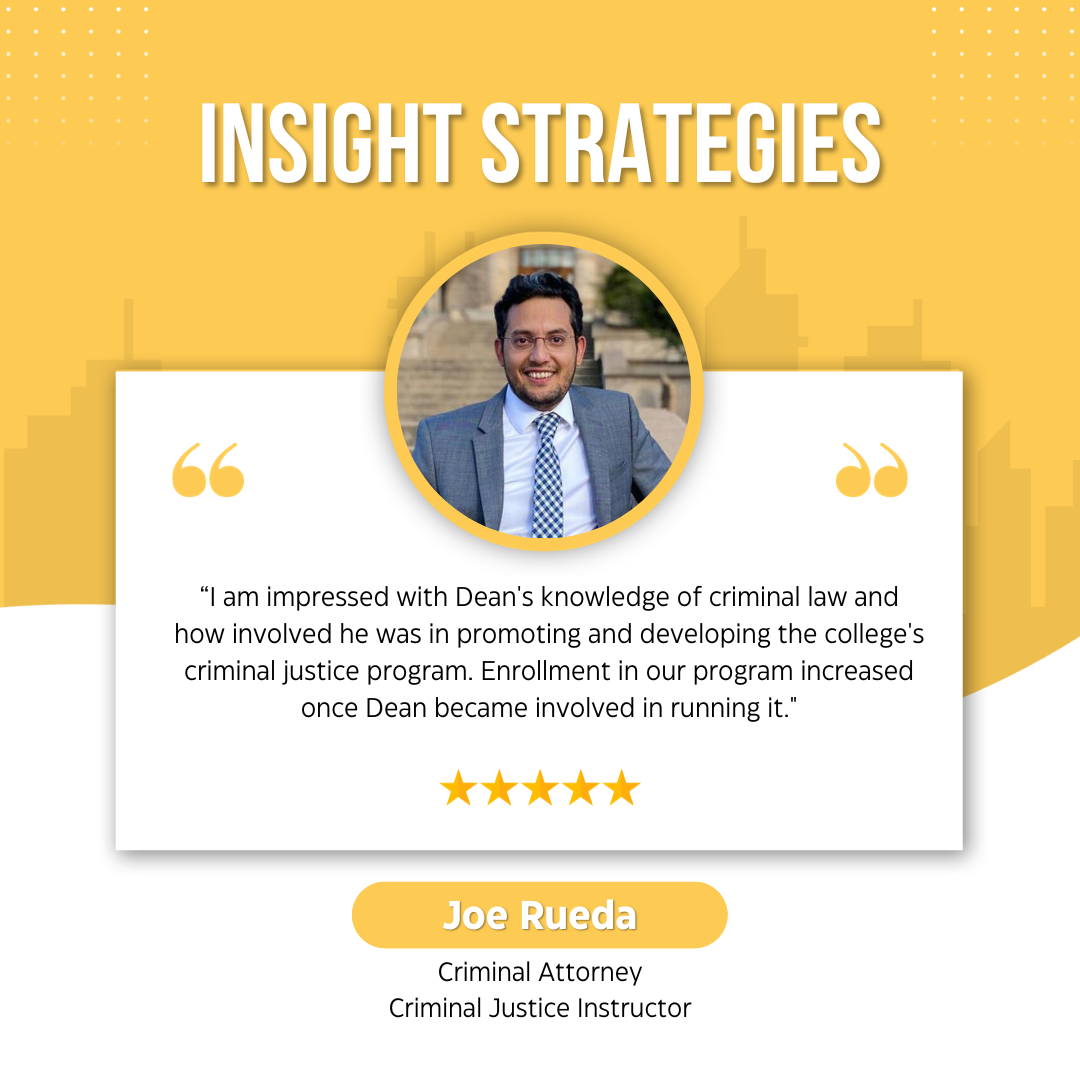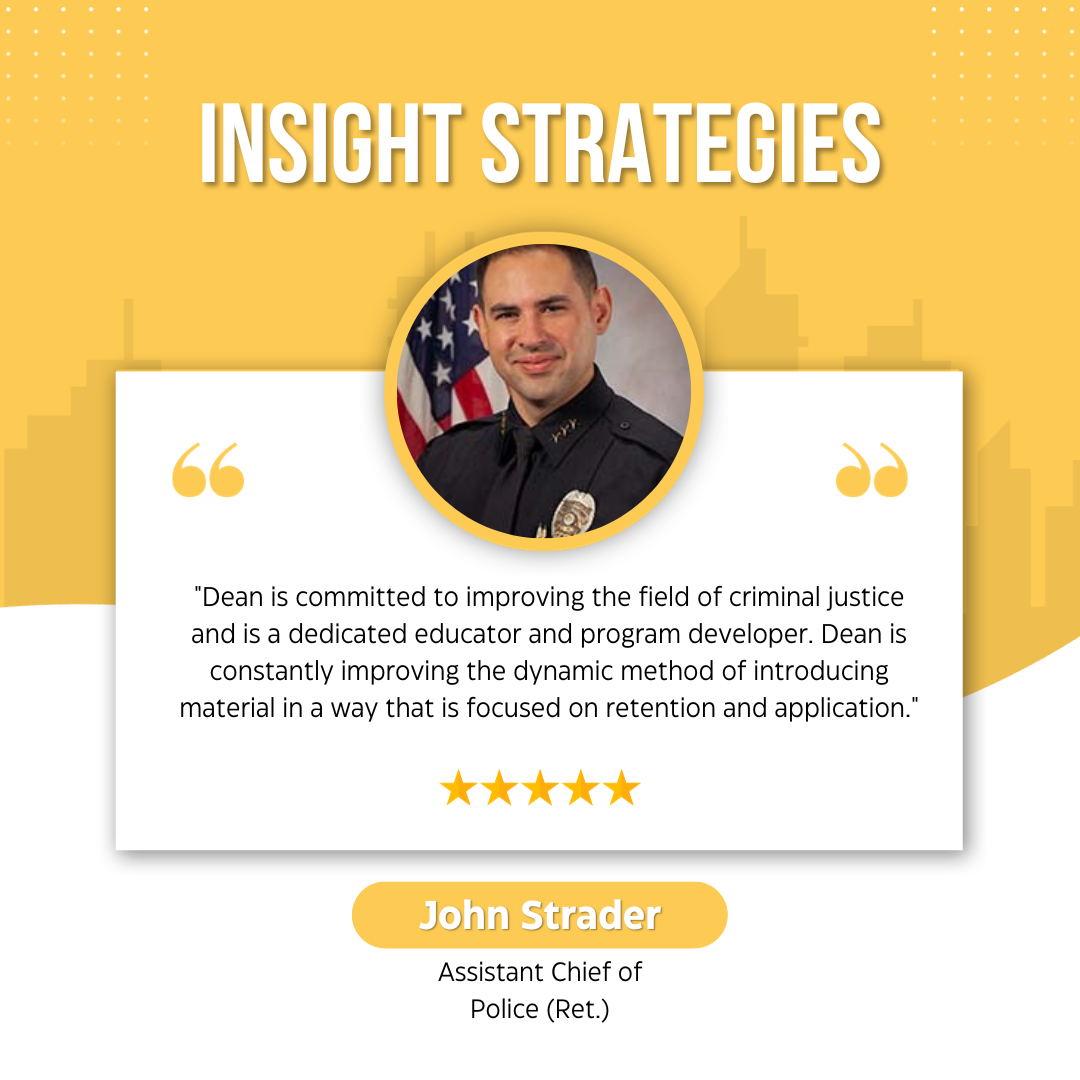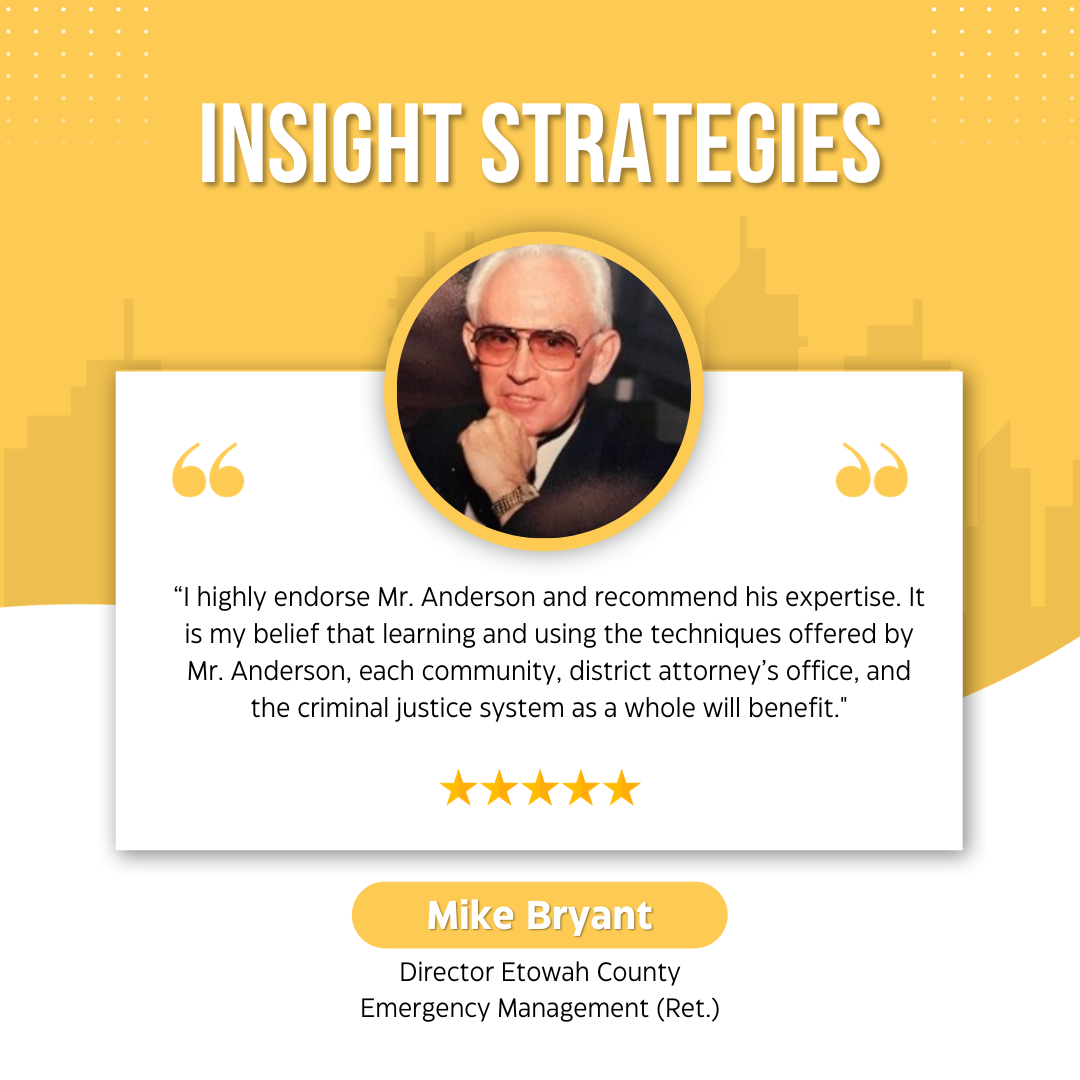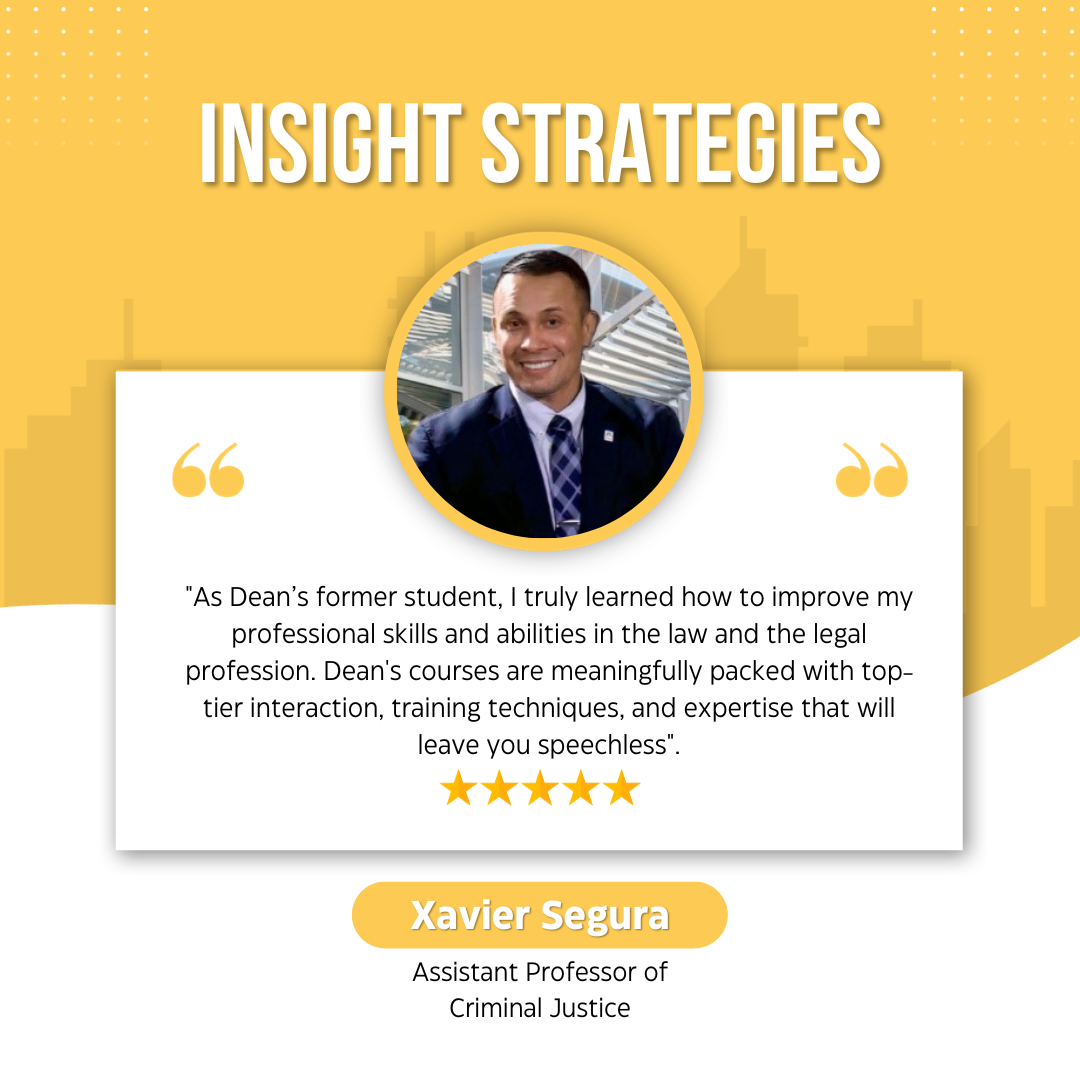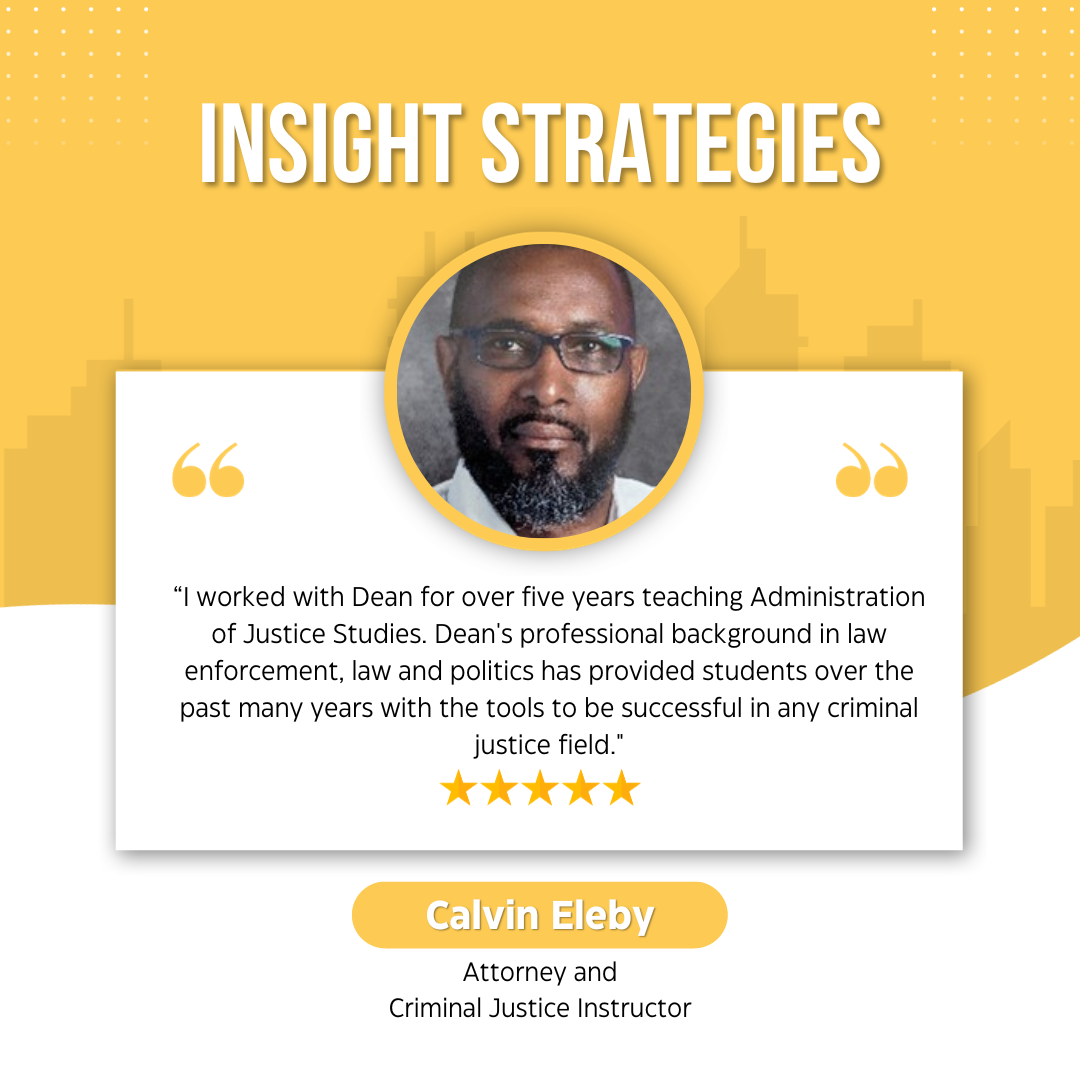
Training
Workshops
Hosting
Prepare for a Career in Law Enforcement

Workshops
-
Prosecutors must prove each statutory element of the crimes charged beyond a reasonable doubt to get convictions. If the defense counsel can introduce reasonable doubt in any “one” element, the accused can walk. Your ability to properly identify and prove each element gives you confidence that your arrests are solid and should result in a confession or conviction.
Upon successful completion, you should be able to:
1. Apply statutory requirements for culpability.
2. Understand crime elements, in general, to include definitions and aggravating/mitigating circumstances.
3. Explore your state’s criminal statutes for all possible crimes related to a criminal event scenario.
4. Find the elements of specific crimes in statute and outline them in provable pieces.
5. Explore ways to prove each element of specified crimes.
6. Consider exceptions and defenses.
7. Given scenarios, present the best evidenced-based case to a prosecutor.
-
Too many people want to sue the police. Plaintiffs find legitimate ways to get money from the department, officers or the government on issues related to constitutional rights, use of force, negligence, and failure to train or supervise. Learn how to reduce your exposure.
Upon successful completion, you should be able to:
1. Identify ethical responsibilities.
2. Distinguish between mistake versus misconduct.
3. Reduce your exposure to failure to train or supervise lawsuits.
4. Identify methods used by antagonists and plaintiffs.
5. Apply lessons learned from key cases.
6. Become more aware of your body cameras.
7. Work with your jurisdiction’s attorneys to dismiss lawsuits
-
Writing matters! Words matter. Even though some of your reports won’t make it to a trial, every report will lead to a decision about your arrests, treatment of arrestees, and ultimately confessions and/or convictions. This workshop is different than many other writing workshops in that we focus on storytelling and the support that can be used in court, rather than just fulfilling your agency’s requirement to document an incident.
Upon successful completion, you should be able to:
1. Determine how your reports may be used in court
2. Positively identify every person
3. Tell a story that the jury can experience in chronological order
4. Avoid confusion
5. Write in active voice and use good grammar
6. Include details responding to the interrogatories
7. Create effective supporting documentation that stand on their own
8. Connect evidence to the crime elements
-
Officers and investigators can be called to testify in various types of hearings and trials to include preliminary hearings, grand juries, suppression hearings, probable cause hearings, criminal trials, traffic court, and even civil lawsuit trials. Your testimony can make or break a case for the prosecutor. In this workshop, you will learn how to be best prepared to deliver impactful testimonies.
Upon successful completion, you should be able to:
1. Review your reports in advance and refresh your memory when on the stand.
2. Tell a story that the judge and jury can reasonably follow.
3. Understand the parties in a trial, their roles and likely behavior.
4. Be prepared for court procedures and where you fit in.
5. Respond credibly to direct- and cross-examination.
6. Know when to talk, how much to talk and when to wait for prosecutor guidance.
7. Make a good impression.
-
Good arrests should result in convictions or confessions. In this workshop, you will learn to properly apply crime elements to your interviews, reports and court testimonies. You will practice clear, accurate, and complete storytelling reports and the support documentation that can be effectively used in court. You will also learn to apply the crime elements and reports to credible court testimony.
Upon successful completion, you should be able to:
1. Determine the elements of crimes;
2. Provide proof for each element;
3. Write reports that tell a story that prosecutors and juries can clearly understand;
4. Incorporate facts, proof, crime elements, supporting documentation, and answers to interrogatives in your reports';
5. Adequately prepare to testify in a trial; and
6. Perform credibly before juries during direct and cross examinations.
-
This workshop is designed specifically for law enforcement professionals and focuses on enhancing officers’ ability to read environments, detect threats early, and make rapid, informed decisions under pressure. Participants will gain practical tools and techniques used in intelligence operations—adapted for the realities of policing.
Experience on the street has already taught you much of what you need to observe. Still, you can improve your powers of observation by simply being more aware of the types of things you need to observe. Circumstances may interfere with notetaking or recordings, thus requiring you to memorize facts for some period and then commit them to notes and report. In this workshop, you will also learn techniques to improve retention and recall.
Upon successful completion, you should be able to:
1. Read the environment, detect threats early on, and make rapid, informed decisions under pressure.
2. Use comparisons to determine height, weight, distance, dimensions, and brands.
3. Identify locations without addresses.
4. Describe people, vehicles, structures, and items that make them unique.
5. Read body language using baseline and universal traits for fear, deception, and the like.
6. Make your observations actionable
7. Employ common retention methods (writing, reading, listening, demonstration, doing).
8. Use all your senses when describing.
9. Use storytelling, repetition, association, charts, maps, drawings, and more.
-
You know the intricacies of investigation. However, even the most experienced investigators can paint themselves into a corner. In this workshop, you should gain the ability to see crimes from different perspectives, thus avoiding confirmation bias or blindsiding the prosecutor.
Upon successful completion, you should be able to:
1. Develop a sound theory of the case and possible alternate theories
2. Build a strong case that mitigates suspects’ defenses
3. Use crime elements effectively
4. Collect evidence that proves the crime elements
5. Interview witnesses and victims
6. Effectively interrogate suspects
7. Manage the crime scene
8. Know how new technology can benefit your investigations
-
Once the preliminary investigation has taken place, you and your supervisor will have to determine whether to pursue an investigation, which pieces of evidence you must develop to support the crime elements, and which collection methods will work best to prove a case.
Upon successful completion, you should be able to:
1. Use solvability factors in a case screening model
2. Prepare a meaningful investigation plan
3. Try to prove innocence, not just guilt
4. Perform appropriate research of offense reports, criminal histories, credit reports, patterns, databases, etc.
5. Conduct sufficient canvassing and in-depth interviews
6. Organize and execute surveillance activities
7. Use informants, as necessary
8. Assess the credibility of witnesses
9. Coordinate with other agencies
10. Determine connections and relationships
-
When no other means exists for collecting essential evidence, you may want to find a source with access to the criminal enterprise who will be willing to secretly provide that essential evidence to the police. Informant operations are tricky because people can be unpredictable, even after completing a thorough evaluation of their propensity for success and failure. This workshop covers the informant operation cycle and key considerations for each step in the cycle.
Upon successful completion, you should be able to:
1. Determine evidence requirements and that no other means of collection exists
2. Identify prospective informants
3. Evaluate pros and cons, access, motivations, weaknesses, and more
4. Build a relationship with the informant and establish incentives
5. Commit the informant to a confidential relationship with an exit plan
6. Train the informant
7. Control the informant’s evidence collection and reporting activities
-
Physical surveillance is, in essence, the undetected observation of criminal suspects. The purpose of law enforcement surveillance is to determine a criminal act that is occurring or is about to occur.
Upon successful completion, you should be able to:
1. Choose the appropriate form of static or mobile surveillance
2. Use the eye, secondary, parallels, and replacements
3. Follow the rabbit into large and small venues
4. Plan a dry run foot and/or vehicular surveillance
5. Determine and set up communications methods and notetaking
6. Set up and move the box
7. Remain undetected
8. Take undetected pictures/videos
9. Do it legally
10. Dealing with interference by other law enforcement officers
11. Know when to break off surveillance
-
More and more, crimes are influenced by sophisticated backers who ensure its operatives are trained and skilled in detecting and shaking surveillance before committing to a criminal act. For your own surveillance efforts to be effective against trained operatives, you need to understand their training. This workshop walks you through their techniques; ultimately giving you the edge against human traffickers, drug traffickers, internationally backed gangs, terrorists, organized street violence, and possibly spies. This workshop can be tailored to your specific needs.
Upon successful completion, you should be able to:
1. Determine the need for surveillance detection
2. Practice unassuming demeanor
3. Lure surveillance team members
4. Bore surveillance team members
5. Create a route with credible stops
6. Detect surveillance on foot
7. Detect surveillance in a vehicle
-
Rapport is a “trusting” relationship between people. You need a trusting relationship to get to the truth and to help de-escalate tense situations. The problem is that most people, including victims and witnesses, don’t automatically trust the criminal justice professional. To get to the truth and help you de-escalate tense situations, you must master instant rapport building skills. This workshop focuses on knowing yourself and your surroundings well enough that you can connect with anyone instantly. Once you know yourself, you need to develop people skills that put you in charge while making others feel they can trust you enough to give you truthful information. Good people skills will also help you reduce the need for use of force
Upon successful completion, you should be able to:
Determine your desired rapport end state
Assess your own personality character traits, life script, likes & dislikes, beliefs, biases
Assess your own emotional intelligence strengths, motivations, and defense mechanisms
Use victim advocate services to help build rapport
Become situationally aware
Develop solid first impressions
Improve your approach and your body language
Read others’ body language, mirror, match, and lead
Apply rapport-building skills to consensual encounters and sensitive or volatile situations such as stalking, domestic violence, assaults, sexual assaults, and human trafficking.
-
Interviews of suspects, victims and witnesses should produce complete, relevant, accurate, and timely information that will help get confessions, convictions, or exoneration. Your ability to conduct all kinds of interviews effectively is based on mastering the basic skills such as planning, rapport-building, active listening, and effective questioning techniques. You must also develop an investigative attitude.
At the end of this workshop, you should be able to:
1. Improve your ability to think critically,
2. Formulate interview plans, even when there’s little time to plan,
3. Effectively approach the interviewee and gain cooperation,
4. Ask interrogatives and questions that probe the memory, and
5. Use conversational methods to elicit information.
-
In this workshop, you will enhance your skills in conducting effective roadside interviews during traffic stops. The workshop emphasizes situational awareness, communication techniques, and the ability to detect deceptive behavior. You will learn how to maintain control of interactions while avoiding confrontations.
Upon successful completion, you should be able to:
1. Develop effective communication strategies for traffic stops.
2. Learn phrases to verbally control individuals without escalating tensions.
3. Understand the process of observing violators during traffic stops.
4. Assess behavior and identify signs of concealed criminal activity.
5. Recognize deceptive behavior indicative of unlawful acts.
6. Apply techniques to assess truthfulness during roadside interviews.
7. Learn specific questions to ask after making contact during traffic stops.
8. Enhance fact-gathering abilities through targeted inquiries.
-
Using guided conversation techniques, you can discreetly move the conversation in directions that cause the interviewee to reveal desired information. Guided conversations can lead to elicitation and more in-depth questioning. [For parole and probation officers, this workshop supports motivational interviewing]
Upon successful completion, you should be able to:
1. Conduct casual conversations in interviews and interrogations
2. Identify the objective and design a guided conversation plan
3. Start the conversation by implementing an effective approach and establishing rapport
4. Keep the conversation going by employing red light/green light and active listening techniques
5. Pick up on important topics and use segues and bridging to control the conversation
6. Explore sensitive topics
7. Determine why elicitation works
8. Learn and employ elicitation techniques
9. Identify and overcome deflection methods
-
Rapport building, guided conversations, and elicitation techniques get you into the casual conversation, interview, or interrogation without appearing to be conducting an interrogation. Once you have established a level of rapport and willing discussion, you must ultimately dive into the interrogatives (who, what, where, why, when, and how). This workshop uses the Socratic method of questioning to get answers to the interrogatives. The overall purpose of Socratic questioning is to challenge accuracy and completeness.
Upon successful completion, you should be able to:
1. List who, what, where, why, when, and how questions
2. Question for clarity
3. Probe assumptions, rationales, reasons, and evidence
4. Explore viewpoints, perspectives, implications, and consequences
5. Question the questions and answers
6. Mix Socratic questioning with guided conversations and elicitation techniques
-
You have an indication that a person could be a suspect for a crime but do not yet have enough information to make an arrest. To avoid future defense claims of interrogation during questioning, you must understand the difference between interviewing, questioning and interrogation, and execute the correct techniques for pre-arrest questioning.
Upon successful completion, you should be able to:
1. Avoid revealing that the suspect is a suspect
2. Gathering information about the suspect before the interview
3. Create the correct timing, location and set-up for the interview
4. Disbelief in suspect’s declarations
5. Appy psychological ploys to obtain admissions
6. Keep the suspect talking while restricting your own amount of information giving
-
In-custody interrogations can be tricky. You must be able to contrast between an interview and interrogation. Misunderstanding this distinction can lead to a lost case. Gaining the ability to understand the intricacies of an interrogation involves reasoning, inferring, interpreting, analyzing, and cognition skills. You must be persuasive in your interrogation methods and abilities.
Upon successful completion, you should be able to:
1. Think like an attorney
2. Confidently understand Miranda and its exceptions
3. Determine whether an interrogation is custodial
4. Legally, keep the suspect from asserting his/her right to an attorney
a. I need an attorney v. I want my attorney
5. Continue an interrogation after the suspect’s assertion of his/her right to an attorney using:
a. another case or
b. waiver of rights. (Get suspect to sign a form that allows for a waiver)
6. Write a flexible interrogation plan
7. Use all your senses to pick up on changes and inconsistencies
8. Use verbal and non-verbal two-way communication skills
9. Legally, use tricks and deception
10. Employ traditional and non-traditional interrogation techniques
-
Many departments have a very young workforce, requiring them to promote relatively inexperienced young officers to supervisory positions. This workshop is designed to help young supervisors gain the knowledge and skills they need to lead and manage in a way that invites willing compliance and teamwork.
Upon successful completion, you should be able to:
1. Identify the traits of good and bad supervisors
2. Internalize the role of a good frontline supervisor
3. Create an appropriate relationship with officers working for you
4. Be accountable for your team’s successes and failures
5. Communicate effectively up and down the chain
6. Be responsive to your team and leadership
7. Champion the Chief’s vision and culture
-
Leading a group of individuals can be one of the most challenging, yet rewarding parts of your job. Leading through conflict, disagreement, and varied personalities takes intentional leadership skills. This workshop will address the various barriers you’ll face and give you the tools needed to mold your individuals into cohesive teams.
Upon successful completion, you should be able to:
1. Identify the aspects of your team that are producing both positive and negative results.
2. Determine what a successful team looks like.
3. Discuss and create a plan to optimize the positive and reduce the negative.
4. Create actionable next-steps to include team goal setting, healthy conflict management, and creating a psychologically safe culture of choice within the team.
-
Supervisors will learn to apply coaching and counseling, motivational principles, and disciplining techniques that maintain the professionalism of the organization and dignity of the employee.
Upon successful completion, students should be able to:
1. Understand and address misconduct to include off duty misconduct;
2. Recognize top performers;
3. Improve performance of the chronic low performers;
4. Motivate middle performers to become high performers;
5. Understand discipline and appeals of discipline and
6. Addressing appropriate levels of discipline.
-
What if you could change your organizational culture to reduce or eliminate the use of excessive force, improve morale, and generate loyalty, service, and outstanding performance — all while creating greater community support for your department? You can; by implementing these techniques for managing performance.
Upon successful completion, you should be able to:
1. Involve members of your team in identifying competencies by which their performance will be assessed
2. Align those competencies with your agency’s mission, values, culture and objectives; as well as community and stakeholder expectations
3. Ensure all the members of your team know their responsibilities
4. Ensure command is involved and kept informed
5. Track accountabilities and hold your team accountable to what they’ve committed.
6. Celebrate successes and achievements.
-
You may have said “it’s enough to just get through the day. I can’t be expected to plan 4-5 years in advance.” You’re not alone, yet senior leaders who want to see a culture change in their departments, who want better equipment, better prepared officers, and more money in their budgets realize that they don’t appear overnight. It takes vision, communications, planning, relationships, culture, loyalty, performance, proof of success, and … TIME. This workshop will get you on the right track, but you will likely need a professional consultant to walk you through the steps of translating vision to execution and ultimate achievement of your goals. Make Insight Strategies, LLC your choice for consultants.
Upon successful completion, you should be able to:
1. Identify Your Desired Mission, Vision, Culture
2. Consider the External Environment
3. Consider the Internal Environment
4. Create Long-Term Objectives and a Grand Strategy
5. Measure Performance and Results
6. Implement the Strategy
-
For the past few years, would-be anarchists have led the charge that we don’t need the police or that we should replace police officers with social workers. They have claimed that the police are all racists and unnecessarily violent toward certain classes or races. You know what is true and what isn’t for your department, but many citizens in your jurisdiction don’t know what you know, so unfortunately believe the most negative portrayals.
Since “perception is reality”, it would be wise to improve whatever community engagement processes you have currently. This workshop should help you in that regard. You may want to consider hiring a professional consultant with experience in community engagement to help you execute a sound community engagement plan. Make Insight Strategies, LLC your choice for consultants.
Upon successful completion, you should be able to:
1. Identify Competing Visions for Law Enforcement
2. Reconcile the Differences
3. Create a Community Engagement Strategy and Plan
4. Implement a Community Engagement Strategy and Plan

Hosting
How to Host a Workshop
Host a workshop at your department’s training facility and get 1 free seat for every 5 paid seats that your department fills.
As a host, you agree to:
Provide for the first five paid seats to show your interest and commitment to the material being taught, which will encourage others to sign up. The first five seats don’t necessarily have to come from your agency. We simply need to verify that the seats were filled due to your efforts.
Provide a training facility with:
— a computer, laptop hook-ups, a projector, and a screen;
— a whiteboard or butcher block paper on an easel;
— tables and seating for a minimum of 25 students comfortably seated; and
— restrooms, drinking water, and preferably coffee and its fixings.
Actively participate in marketing the workshops you’re hosting. This includes:
— Posting an Insight Strategies flyer through ROCIC;
— Posting an Insight Strategies flyer once per week on Facebook’s “Alabama Police Training Announcements” page; and
— Calling, texting, and/or emailing your network of chiefs and training officers to encourage them to commit officers to the workshops you are hosting.
Most important, BE RESPONSIVE! Reach out to us no later than 48 hours from the time we call, text, or email you.
To get this started,
Email us at dean@insightstrategiesllc.net to express your interest in hosting. Please provide 2-3 potential dates and the workshop you’d like to host. We will confirm the date and instructor availability with you.
Send an email with the ranks, names, and email addresses for the first five attendees to dean@insightstrategiesllc.net.
Next, we will register your first attendees using department credit card(s) or by sending you an invoice with registration forms.
We will email you a receipt/confirmation and recognition of any free seats coming your way.

Prepare for a Career in
Criminal Justice
For High School Students
For College Students
Hear from our past clients!
